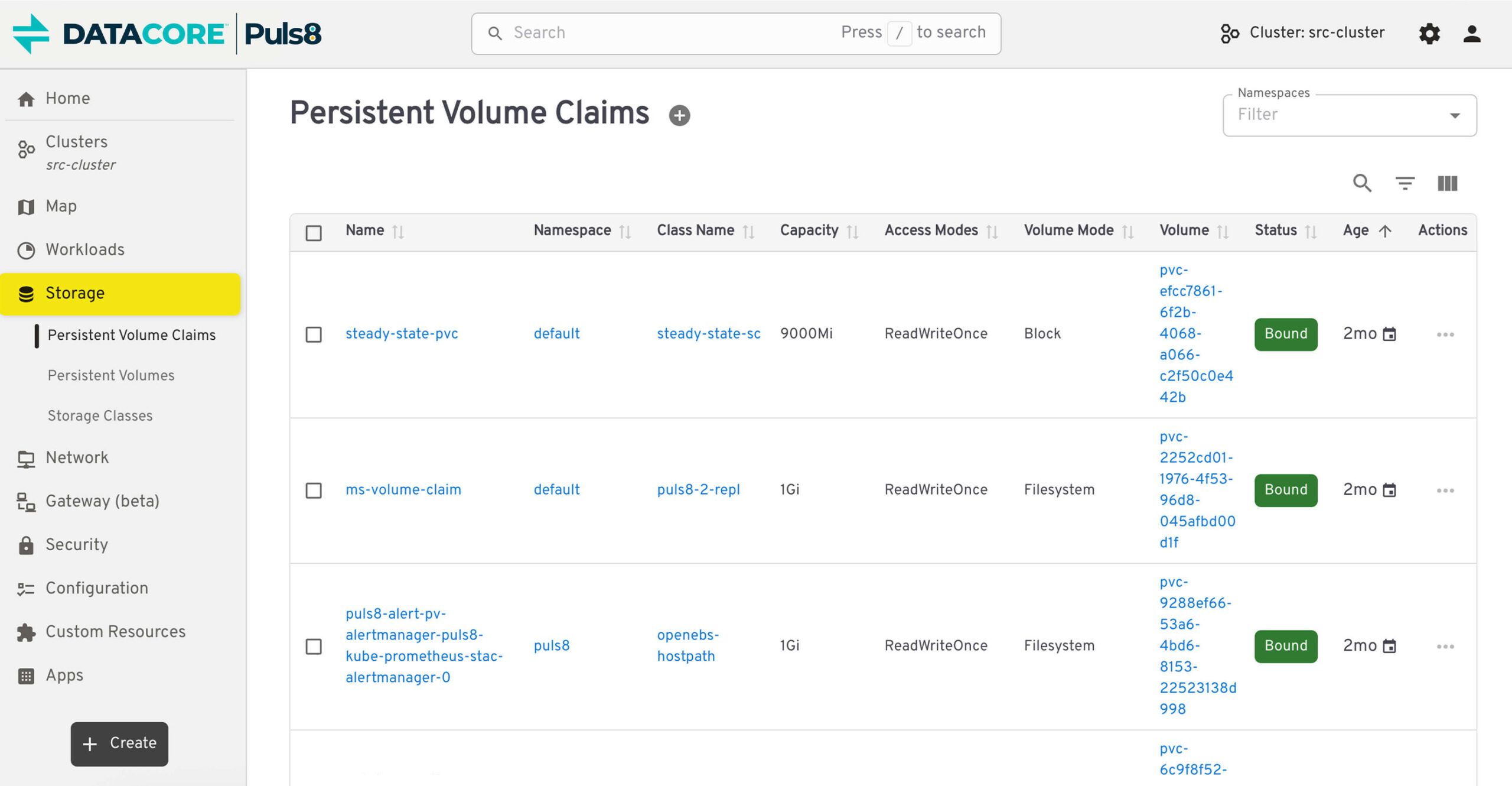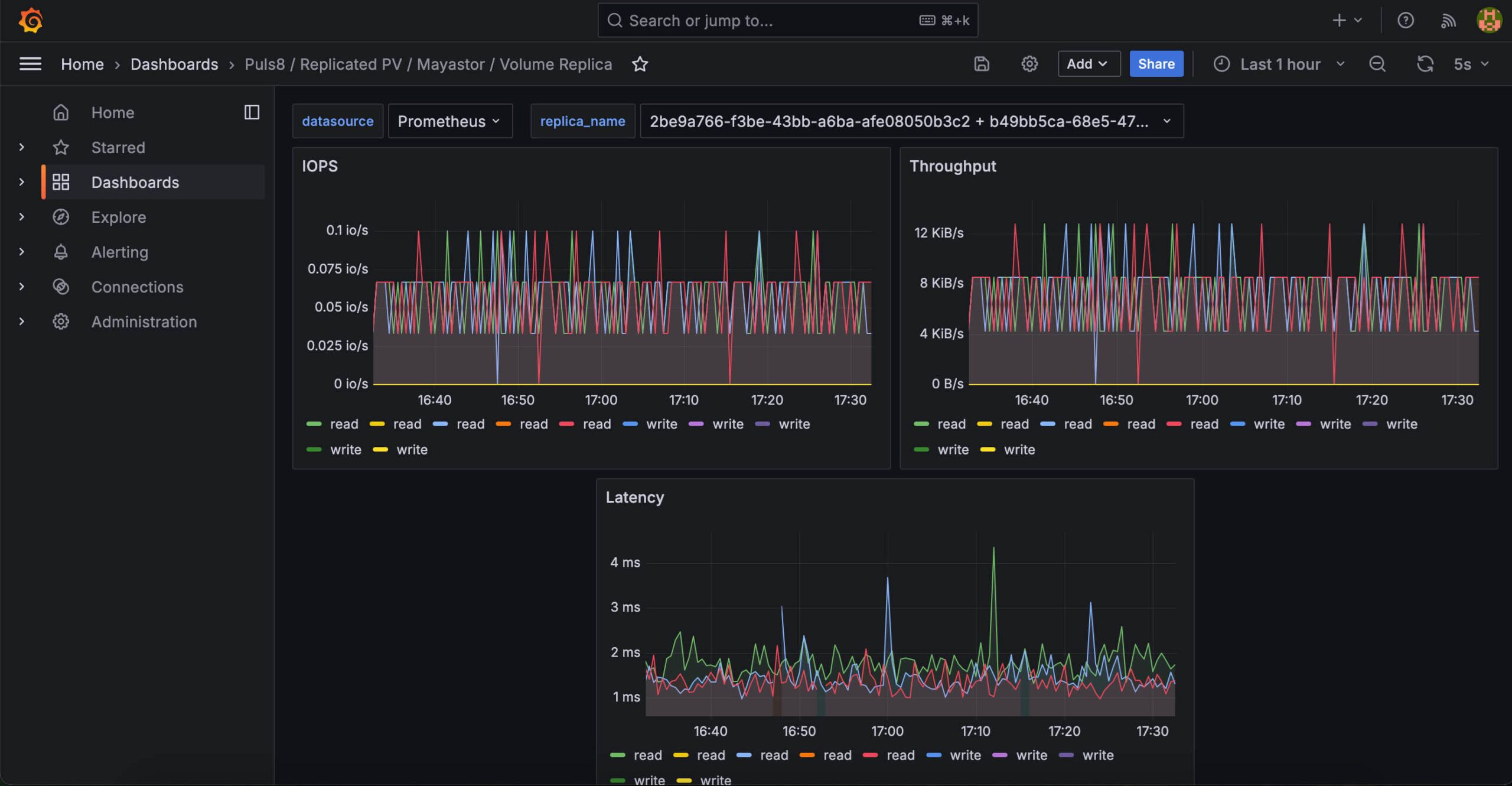Running stateful applications on Kubernetes is not easy. Containers are dynamic by design: they can restart, move, fail, or scale at any time, but the data needs to persist through it all. Most traditional storage platforms weren’t built for this environment. They require native integration with Kubernetes and require manual setup and tuning.
DataCore Puls8 is built to solve that. It’s a container-native storage platform that integrates directly with Kubernetes – turning local node storage into fast, resilient persistent volumes with built-in replication, observability, and automation. It gives DevOps, SRE, and platform teams the storage experience Kubernetes needs: seamless, scalable, and production-ready.
- Accelerate stateful workloads with low-latency NVMe performance
- Achieve volume high availability without external storage dependencies
- Simplify operations without requiring Kubernetes storage expertise
- Scale storage seamlessly as your clusters and applications grow
- Built to work the way Kubernetes expects: native, declarative, infrastructure-agnostic
Use Cases
Ensure high availability for stateful apps and databases (PostgreSQL, MySQL, MongoDB, etc.)
Support CI/CD pipelines with fast, reliable storage
Standardize persistent storage across dev, test, and production clusters
Power observability and search stacks such as ELK and EFK with scalable storage
Deliver high-performance shared storage for AI/ML workloads
Support backup and recovery for cloud-native applications
Features
- Dynamic volume provisioning via native Kubernetes APIs using PVCs and storage classes
- Support for both local and replicated volumes to match infrastructure needs
- Centralized declarative control plane to manage persistent volumes across clusters
- Leverage the full potential of NVMe drives to deliver high throughput for demanding stateful workloads
- Volume replication and automated application failover across nodes
- Encryption at rest with KMS support to enhance data security
- Advanced data services including thin provisioning, snapshots, and more
- Integrated observability stack with Prometheus, Grafana, and Alertmanager
- Automated backup and recovery workflows via Velero and Veeam Kasten integration
The figure below highlights the various capabilities of Puls8 container-native, persistent storage solution, including key data services, access methods, and supported protocols.
Consumers
-
KUBERNETES STATEFUL APPLICATIONS (E.G., DATABASES, MESSAGE QUEUES, ANALYTICS, AI/ML, CI/CD, MICROSERVICES)
Access Methods
-
NVME-OF TCP
-
NVME-OF RDMA
Operation & Insights
-
Orchestration
-
Pool Management
-
Performance & Health Monitoring
-
Historical / Real-Time Charts
Data Services
- PERSISTENT VOLUME PROVISIONING & MANAGEMENT
- BACKUP & RECOVERY
- VOLUME REPLICATION
-
SNAPSHOTS
- APPLICATION FAILOVER
-
THIN PROVISIONING
-
ENCRYPTION WITH KMS SUPPORT
-
OBSERVABILITY
Command & Control
-
Graphical / User Interface
-
Kubectl / CLI
-
REST API
STORAGE PROTOCOLS
-
NVME/NVME-OF
-
FC
-
ISCSI
-
SAS/SATA
Benefits
- Makes it easy to build and run stateful services on Kubernetes — no custom tooling, no deep infra knowledge, just storage that works with your code
- Boost performance for latency-sensitive workloads like databases, CI/CD systems, etc.
- Minimize downtime risk for containerized services, even as pods restart, nodes fail, or workloads scale across the cluster
- Cut operational complexity with fully automated, Kubernetes-native storage workflows
- Standardize storage across environments to simplify governance and control sprawl
- Maintain infrastructure independence with the reliability and support enterprise environments demand
Deployment
DataCore Puls8 runs on any standard Kubernetes environment: on-premises, in the cloud, or at the edge. It supports both hyper-converged setups, where storage runs on the same nodes as workloads, and dedicated storage nodes when needed. Puls8 works across single or multi-cluster environments with consistent behavior and performance.
Licensing
DataCore Puls8 is licensed based on the number of Kubernetes nodes in a cluster where it is installed. This includes all nodes regardless of role (worker or master), and applies to both virtual machines and physical servers. Licensing is unaffected by the number of pods, containers, volumes, IOPS, or total storage capacity, making it simple to predict costs and scale without hidden limits.
High-Performance, Persistent Storage for Stateful Kubernetes Applications.
Unmatched Performance for Kubernetes
Discover How Google Cloud Local SSD Combined with DataCore Puls8 Delivers 14× More Read IOPS and 3× Higher Throughput
Accelerating Kubernetes Services
Learn how TodoEnCloud benefited from DataCore Puls8 to deliver faster, more resilient Kubernetes services across multi-cluster environments.

